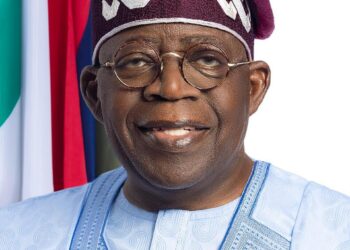Diaspora remittances are among the most significant yet underappreciated lifelines of Nigeria’s economy. Every year, millions of Nigerians living and working abroad send money back home to support their families, build houses, pay school fees, and fund small businesses. These individual acts of care and solidarity, when aggregated, form a powerful stream of foreign exchange that rivals and sometimes surpasses the country’s earnings from oil.
In recent years, diaspora remittances have proven to be a more stable and consistent source of external financing than many other economic inflows. While foreign direct investment can fluctuate with market uncertainty, and oil revenues are tied to volatile global prices, remittances remain steady. In difficult times, during recessions, pandemics, or political crises, remittances often increase, providing essential relief for families and communities. This resilience makes them an indispensable pillar of economic stability.
The significance of these funds goes beyond household welfare. Remittances contribute to Nigeria’s foreign reserves, help stabilise the naira, and provide liquidity in the banking system. For a country grappling with currency devaluation, inflation, and rising public debt, this infusion of private capital offers breathing room. It is one of the few financial flows that do not require repayment or conditions from international institutions.
Despite their importance, remittances remain underutilised in national development planning. Much of the money is channeled through informal routes, which not only reduces transparency but also undermines the potential economic impact. The high cost of remitting through formal channels, regulatory uncertainty, and a general lack of trust in financial and government institutions discourage many in the diaspora from using official systems or investing more meaningfully in the country.
The Nigerian government has a responsibility to change this dynamic. First, it must reduce the cost and complexity of sending money home. Encouraging competition among money transfer operators, supporting fintech innovations, and embracing digital solutions can make remittance services more efficient, affordable, and accessible. When the process is seamless and the costs are low, more Nigerians abroad will choose formal channels that ultimately benefit the entire economy.
Second, there must be greater engagement with the diaspora community. The government needs to shift from seeing the diaspora solely as a source of income to treating it as a key partner in national development. This includes listening to their concerns, building trust, and creating financial instruments that are tailored to their needs. Diaspora bonds, real estate investment platforms, and targeted savings programmes can give Nigerians abroad meaningful opportunities to invest in their country’s future.
Crucially, the government must ensure macroeconomic and political stability. Remitters need confidence that their money will retain its value and that the environment is safe and predictable for investment. Tackling corruption, improving infrastructure, and maintaining consistent economic policies are essential steps in creating the right climate for diaspora engagement.
Beyond monetary measures, there is a symbolic dimension to all of this. When Nigerians abroad feel genuinely valued, when they are invited into the national conversation and offered real roles in shaping the country, they are more likely to commit their resources, expertise, and energy to national progress. The diaspora is not just a source of funds; it is a source of innovation, knowledge, and patriotism.
Harnessing the full power of diaspora remittances will require vision, transparency, and sustained policy reform. But the payoff is immense. In a time of global economic uncertainty and domestic challenges, Nigeria cannot afford to leave this vital resource untapped. The time has come to recognise diaspora remittances not as a private act of generosity, but as a public engine of national development, and to build the systems, policies, and trust that will allow them to flourish.





